Dr Stephanie Andriputri
MBBS; BA; DRANZCOG; DCH; FRACGP
Acute IllnessChild Health ServicesChronic Disease Prevention & ManagementMental HealthReproductive HealthSexual HealthTravel HealthWomen’s HealthWork Health
There are many things to consider when booking that long awaited time away. Where to stay, what to see and do, how many pairs of shoes will you pack?
But over at GSHealth we can help you sort through your itinerary and explain the risks, how to minimise them and stay healthy.
Certain destinations carry special risks, so where are you heading?
Travel Health and Safety
Some important things to consider before booking your time away.
Is where I’m going safe right now? What are the common illnesses in travellers there, how easy is it to get medical attention?
Making sure your own health is managed before heading overseas makes a big difference, is your asthma and eczema well controlled? Any niggling muscle and joint problems? Sore tooth you haven’t got around to treating?
If you’re a frequent traveller you may have had some vaccinations along the way, but do you know which ones and how long ago? The most important vaccinations are for the commonest illnesses and the most significant. Influenza vaccination is highly recommended and should be yearly 2016 was a bad year, but 2017 was about four times worse.
Typhoid only lasts for three years, and hepatitis A immunisation offers lifelong immunity if you’ve received a full course (most people have 1 injection and forget about the follow up).
If you were born in a country that doesn’t have hepatitis B immunisation, it’s important to be caught up. Please visit our pages on all available vaccinations and when it’s important to consider them.
For some, the ideal holiday is going on a food tour through Europe, for others it’s trekking to Everest Base Camp. We’re a diverse lot and it’s important we talk about risks for each of our destinations whether it’s altitude sickness, diving injuries, coral cuts or dog bites (from the casual morning jog before a business meeting in Jakarta) it’s important to understand how to minimise these risks.
Do you have what you need in the event of a minor illness or injury? We can help you prepare an individualised medical kit including appropriate antibiotics for travellers’ diarrhoea, acute respiratory illnesses, cuts and abrasions, and your regular medications. Some countries need documentation of medications for entry, and others prohibit certain medications altogether. We can help prepare the necessary documentation.
Possibly the most important of all is to have appropriate insurance for your personal needs. Does it cover skiing and snow or specifically prohibit it? How about Scuba diving without an official open water certification? Make sure you know before you go.
Print out our travel checklist to see what you might have forgotten while packing.
Typhoid fever is common in all parts of the world except industrialised nations such as the United States, Canada, Western Europe, Australia, New Zealand and Japan. Travellers to the developing world should consider this vaccination, with the highest risk being South Asia.
Typhoid fever is a serious disease spread by contaminated food and water. Symptoms of typhoid include lasting high fevers, weakness, stomach pains, headache, and loss of appetite. Some patients have constipation, and some have a rash. Internal bleeding and death can occur but are rare.
Immunisation against typhoid typically lasts 2.5-3 years, so be sure to check when you last received it.
Adult travellers should be adequately protected against tetanus before departure, particularly if their risk of sustaining tetanus-prone wounds is high or there could be delays in accessing health services where they can receive tetanus toxoid boosters safely if required. We can use this opportunity to also boost your immunity status against pertussis (whooping cough) by using a dTpa vaccine.
Before departure, adults should receive a booster dose of diptheria and tetanus (dT), if more than 10 years have elapsed since the last dose, or dTpa if not given previously. For high-risk trips, consider a booster of either dTpa or dT if more than 5 years have elapsed.
Most travellers from developed countries to developing countries are at high risk of Hepatitis A. The risk for Hepatitis A exists even for travellers to urban areas, those who stay in luxury hotels, and those who report that they have good hygiene and that they are careful about what they drink and eat.
It is spread by food and water, and very rarely through sexual contact.
Symptoms include a sudden onset of fever, tiredness, loss of appetite, nausea, vomiting, stomach pain, and jaundice (yellowing of the skin and eyes). Some people have no symptoms, while others have symptoms that last 1-6 months. Most people recover with no lasting liver damage.
Once a full course of Hepatitis A vaccine is given, immunity is lifelong. Most people forget their booster shot to complete vaccination, which is done 6-12 months following the first shot. Any longer than this and you have to start again.
While all children born in Australia are now immunised against Hepatitis B, some people begin to lose their immunity into their 20’s and may either need a booster, or repeat the full course of vaccinations. Whilst the risk to most travellers is low, it is highest risk in people engaging in unprotected sex, receiving tattoo’s or undergoing medical procedures overseas. There are certain countries where Hepatitis B is endemic, so make sure you’re immune status is checked before you leave.
A survey has shown that about half of Australian travellers who spent at least 3 nights in Southeast or East Asia had participated in at least one activity with a risk of acquiring hepatitis B.
A full course is given as 3 vaccinations over a 6 month period (at 0, 1 and 6 months) but you can start the course and have some coverage before you head away.
An important vaccination that is a requirement before entering many countries, or returning to Australia if spending time in a Yellow Fever endemic country.
Yellow fever is a disease caused by a virus that is spread through mosquito bites. Symptoms take 3–6 days to develop and include fever, chills, headache, backache, and muscle aches. About 15% of people who get yellow fever develop serious illness that can lead to bleeding, shock, organ failure, and sometimes death.
It’s important to know if Yellow Fever is a requirement anywhere in your itinerary, otherwise you might either have to cut your trip short, receive a vaccine at the border of the country you’re trying to enter (and still may be denied entry) or be kept in quarantine in Australia on your return (see maps for South America and Africa)
This is especially the case for people wanting to travel to Brazil for the Olympics. Have a look at the map below to see where you’re travelling, but also make sure you know the entry requirements before you enter.
Yellow Fever vaccination can ONLY be given at accredited vaccination clinics, such as Green Square Health. It is an important vaccine, so make sure you talk to your doctor if this is the right vaccine for you. It must be given at least 10 days before entry into a Yellow Fever endemic area, and lasts for 10 years (although the World Health Orginisation is trying to ensure it’s valid lifelong).
Rabies is found everywhere on Earth, except Antarctica. Travellers who may come into contact with wild or domestic animals are at risk for rabies. This includes travellers spending a lot of time outdoors (such as campers and cavers), travellers with occupational risks (such as veterinarians and wildlife professionals), and long-term travellers and expatriates. Children are also at higher risk because they often play with animals, might not report bites, and are more likely to be bitten on the head and neck.
In many countries, the risk of rabies is similar to Australia, including most of Europe, Japan, Canada, and the United States. However, in many other parts of the world, rabies in dogs is still a problem, and access to preventive treatment may be hard. These areas include much of Africa, Asia, and Central and South America. If travelling to a country where there is an increased risk of rabies, especially in dogs, rabies vaccination may be recommended before your trip.
Rabies is a deadly disease caused by a virus that is spread in the saliva of infected animals. All mammals can get rabies. People usually get rabies from licks, bites, or scratches from infected dogs and other animals such as bats, foxes, raccoons, monkeys and mongooses.
Rabies affects the central nervous system, ultimately causing brain disease and death. Once symptoms of rabies appear, the disease is nearly always fatal, so prevention is especially important.
Adequate vaccination for exposure to rabies is not available in all parts of the world, so consider buying supplemental health insurance.
Medical evacuation insurance may cover the cost to transfer you to the nearest destination where complete care can be obtained. Some policies may cover your eventual return to your home country
The rabies vaccine is given as Pre-Exposure Prophylaxis (PrEP) before travelling. This is three vaccinations on day 0, 7 and 21-28. If exposed to rabies through a bite, you must seek immediate medical attention as you will need further vaccinations given. Please ask your doctor for more detailed information. Rabies is found everywhere on Earth, except Antarctica. Travellers who may come into contact with wild or domestic animals are at risk for rabies. This includes travellers spending a lot of time outdoors (such as campers and cavers), travellers with occupational risks (such as veterinarians and wildlife professionals), and long-term travellers and expatriates. Children are also at higher risk because they often play with animals, might not report bites, and are more likely to be bitten on the head and neck.
In many countries, the risk of rabies is similar to Australia, including most of Europe, Japan, Canada, and the United States. However, in many other parts of the world, rabies in dogs is still a problem, and access to preventive treatment may be hard. These areas include much of Africa, Asia, and Central and South America. If travelling to a country where there is an increased risk of rabies, especially in dogs, rabies vaccination may be recommended before your trip.
Rabies is a deadly disease caused by a virus that is spread in the saliva of infected animals. All mammals can get rabies. People usually get rabies from licks, bites, or scratches from infected dogs and other animals such as bats, foxes, raccoons, monkeys and mongooses.
Rabies affects the central nervous system, ultimately causing brain disease and death. Once symptoms of rabies appear, the disease is nearly always fatal, so prevention is especially important.
Adequate vaccination for exposure to rabies is not available in all parts of the world, so consider buying supplemental health insurance.
Medical evacuation insurance may cover the cost to transfer you to the nearest destination where complete care can be obtained. Some policies may cover your eventual return to your home country
The rabies vaccine is given as Pre-Exposure Prophylaxis (PrEP) before travelling. This is three vaccinations at day 0, 7 and 21-28. If exposed to rabies through a bite, it is important you seek immediate medical attention as you will need further vaccinations given. Please ask your doctor for more detailed information.
Japanese encephalitis is a disease spread through mosquito bites. Symptoms usually take 5-15 days to develop and include fever, headache, vomiting, confusion, and difficulty moving. Symptoms that develop later include swelling around the brain and coma. JE is a serious disease that may cause death.
Travellers who go to Asia are at risk of getting JE. For most travellers, the risk is extremely low but depends on where you are going, the time of year, your planned activities, and the length of the trip. You are at higher risk if you are travelling to rural areas, will be outside frequently, or will be travelling for a long period of time. In mild climates in northern Asia, the risk for JE is greater in the summer and fall. In tropical and subtropical areas, there is a risk year-round.
There have been recent reports of JE even in travellers staying in resorts in Bali, and global warming may be affecting the seasonal incidence.
The number of doses and booster shots varies depending on the age you are first immunised, but typically anyone over 18 who receives the JE vaccine offered at GSH will not need any further boosters.
Cholera is an acute, diarrhoeal illness caused by infection of the intestine with the bacterium Vibrio cholerae. An estimated 3-5 million cases and over 100,000 deaths occur each year around the world. The infection is often mild or without symptoms, but can sometimes be severe. Approximately one in 10 (5-10%) infected persons will have severe disease characterized by profuse watery diarrhea, vomiting, and leg cramps. In these people, rapid loss of body fluids leads to dehydration and shock. Without treatment, death can occur within hours.
Cholera is endemic in Africa, Asia, South America and Central America. Cholera epidemics are common in circumstances where food and water supplies can become contaminated, such as after natural disasters and civil unrest. Cases of cholera in Australia (about 2 to 6 cases a year) almost always occur in individuals who have been infected in endemic areas overseas. However, the overall risk of cholera to travellers with access to a safe water source and hygienic food preparation is considered to be low, even when visiting countries where cholera is endemic.
What is helpful, however, is the reduction in risk of Travellers’ Diarrhoea associated with E.Coli. The cholera vaccine can reduce the risk of getting E.Coli by 67% for 3 months. So if travelling to a destination where trying the local cuisine and eating authentically is a must, consider this very useful vaccination.
Cholera vaccination is given as a drink, and two doses have required a minimum of 1 week and a maximum of 6 weeks apart.
Since 2003, children in Australia receive meningococcus C vaccine as part of their routine childhood immunisation, and this has severely cut the number of infections since then.
However there are 13 strains of meningococcus, with the most common being A, B, C, W, and Y.
In Australia, B now predominates, and fortunately a vaccine is available to combat this. The risk is highest in people living in close quarters (military personnel, hostels, student accommodation) and people travelling to endemic areas such as the ‘meningitis belt’ of sub-Saharan Africa (see map), or on large congregations such as the Hajj, the Olympics or the FIFA World Cup.
Meningococcal disease is a serious illness caused by a type of bacteria called Neisseria meningitidis. It can lead to meningitis (infection of the lining of the brain and spinal cord) and infections of the blood. Meningococcal disease often occurs without warning – even among people who are otherwise healthy.
Even when it is treated, meningococcal disease kills 10 to 15 infected people out of 100. And of those who survive, about 10 to 20 out of every 100 will suffer disabilities such as hearing loss, brain damage, kidney damage, amputations, nervous system problems, or severe scars from skin grafts.
Meningococcal ACWY vaccines can help prevent meningococcal disease caused by serogroups A, C, W, and Y. A different meningococcal vaccine is available to help protect against serogroup B.
Most measles outbreaks in Australia now result from an infection imported by inadequately vaccinated young travellers. Incidences of measles and mumps are higher in some overseas countries, regions or communities, including developed countries, than in Australia. For Australians, Bali is a particularly endemic travel destination.
Australians born during or since 1966 who have not received 2 doses of measles-, mumps- and rubella-containing vaccines should be vaccinated with the MMR vaccine before travelling (noting pregnancy precautions).
Varicella is a highly contagious infection spread by respiratory secretions, including aerosol transmission, or from the vesicle fluid of the skin lesions of varicella or zoster infection. Varicella is usually a mild disease of childhood. However, complications occur in approximately 1% of cases. It is more severe in adults and in persons of any age who are immunocompromised, in whom complications, disseminated disease and fatal illness can occur.
Varicella vaccine should be offered to unvaccinated travellers who have not had clinical disease, or where serology shows no immunity in those who can’t recall having had chickenpox.
The polio vaccine could be one of the most lifesaving, and world-changing vaccinations ever created and is responsible for the eradication of polio from the Western world. However, it would only take 1 infected person to come and spread the infection again to an unvaccinated population.
Whilst most adults don’t need an immunisation as they were immunised as children, those who are travelling to areas with polio in the population should consider a booster.
Polio is a disease caused by a virus. It enters the body through the mouth. Usually, it does not cause serious illness. But sometimes it causes paralysis (can’t move arm or leg), and it can cause meningitis (irritation of the lining of the brain). It can kill people who get it, usually by paralyzing the muscles that help them breathe.
Polio used to be very common in Australia. It paralyzed and killed thousands of people a year before we had a vaccine.
Currently, 2 countries in the world have never eradicated poliomyelitis, and these are Afghanistan and Pakistan.
There is also circulating polio as a result of outbreaks in Madagascar, Guinea and Ukraine.
The following countries are vulnerable to outbreaks, and people spending time there should also consider a booster;
Cameroon
Equatorial Guinea
Ethiopia
Iraq
Israel
Laos
Nigeria
Somalia
South Sudan
The Syrian Arab Republic
It should also be considered in areas of large gatherings of international visitors, such as the Olympic Games, FIFA World Cup or the Hajj.
The Polio vaccine in Australia is given as inactivated poliovirus, as opposed to the live virus given as an oral dose overseas. It can be given separately, or as part of the Diphtheria, Tetanus and Pertussis vaccination, and can be boosted every 10 years.

Dr Stephanie Andriputri
MBBS; BA; DRANZCOG; DCH; FRACGP
Acute IllnessChild Health ServicesChronic Disease Prevention & ManagementMental HealthReproductive HealthSexual HealthTravel HealthWomen’s HealthWork Health

Dr Caitlin Weston
CF; BLibSt; MBBS; FRACGP
Acute IllnessChild Health ServicesChronic Disease Prevention & ManagementMental HealthReproductive HealthSexual HealthTravel HealthWomen’s HealthWork Health

Dr Atari Metcalf
BSc (Health Promotion); MD; FRACGP
Acute IllnessAlopecia Areata TreatmentChild Health ServicesChronic Disease Prevention & ManagementMental HealthReproductive HealthSexual HealthTravel HealthWomen’s HealthWork Health

Dr Rosemary Chen
BMed
Acute IllnessAlopecia Areata TreatmentChild Health ServicesChronic Disease Prevention & ManagementMental HealthReproductive HealthSexual HealthTravel HealthWomen’s HealthWork Health

Dr Phillip Orme
MBBS; Clin. Dip. Pall Med; FRACGP
Acute IllnessChild Health ServicesChronic Disease Prevention & ManagementHealth OptimisationMental HealthSexual HealthTravel HealthWork Health

Dr Katherine Hanks
MBBS; FRACGP; DCH
Acute IllnessAntenatal CareChild Health ServicesChronic Disease Prevention & ManagementReproductive HealthSexual HealthTravel HealthWomen’s HealthWork Health

Dr Rupert Higgins
BMedSci (Hons); MD (UNSW); FRACGP
Acute IllnessAdolescent Mental HealthChild Health ServicesChronic Disease Prevention & ManagementHIV ManagementMental HealthSexual HealthSkin CancerTravel HealthWork Health

Dr Andrew Trang
MBBS (Adelaide); FRACGP; Prof. Cert Dermoscopy; Adv. Cert Skin Cancer Surgery
Acute IllnessChild Health ServicesMental HealthSexual HealthSkin CancerSurgical ProceduresTravel HealthWork Health
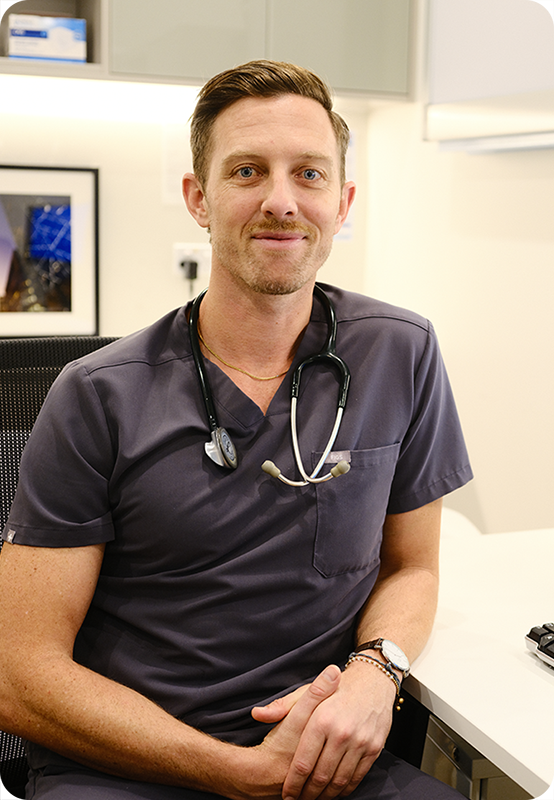
Dr John-Alec Tynan
BSc; MBBS; MPH; FRACGP
Acute IllnessAlopecia Areata TreatmentChild Health ServicesChronic Disease Prevention & ManagementHIV ManagementMental HealthSexual HealthTravel Health

Dr Angela Hurley
B.Sc; MBBS; FRACGP
Acute IllnessChild Health ServicesChronic Disease Prevention & ManagementMental HealthSexual HealthTravel HealthWomen’s HealthWork Health

Dr Min Yin Huang
MBBS; FRACGP; DCH; FPAA Nat Cert
Acute IllnessAntenatal CareChild Health ServicesChronic Disease Prevention & ManagementMental HealthReproductive HealthSexual HealthSkin CancerSurgical ProceduresTravel HealthWork Health

Dr Winnie Yao
MBBS; Paed Cert; FRACGP; SH+FPA
Acute IllnessAlopecia Areata TreatmentAntenatal CareChild Health ServicesChronic Disease Prevention & ManagementMental HealthReproductive HealthSexual HealthSkin CancerTravel HealthWomen’s HealthWork Health

Dr Victoria Phan
BMed MD (UNSW); MClin US; DCH; FPC; FRACGP
Acute IllnessAntenatal CareChild Health ServicesChronic Disease Prevention & ManagementMental HealthReproductive HealthSexual HealthTravel HealthWomen’s HealthWork Health

Dr Daniel Chanisheff
MBBS (Adel); FRACGP
Acute IllnessAlopecia Areata TreatmentChild Health ServicesChronic Disease Prevention & ManagementHIV ManagementMental HealthSexual HealthTravel HealthWork Health

Green Square Health Embarks on the SUSTAIN Paediatric Care Trial

Dr Caitlin Weston returns to GSHealth
We’re excited to announce that Dr Caitlin Weston is returning to the Green Square Health (GSH) family in Waterloo. Having recently worked in Redfern at Citydoc, Dr Weston is committed to ensuring her patients receive uninterrupted and exemplary care. To continue your care with Dr Weston, simply complete the transfer of records form below, and […]

Important Notice: Fee Adjustment Effective July 1st

It’s Travel Season! What vaccines should I get? By Dr John-Alec Tynan

Specialists

Child Health Services

Women’s Health
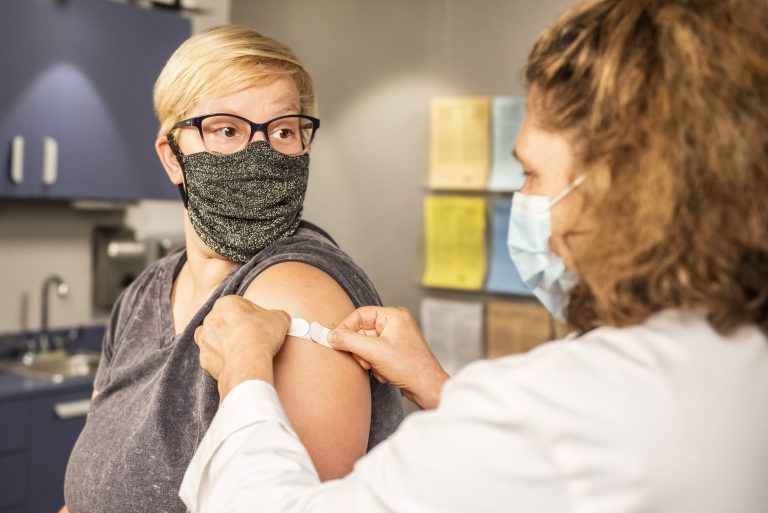
Immunisations

Chronic Disease Prevention & Management
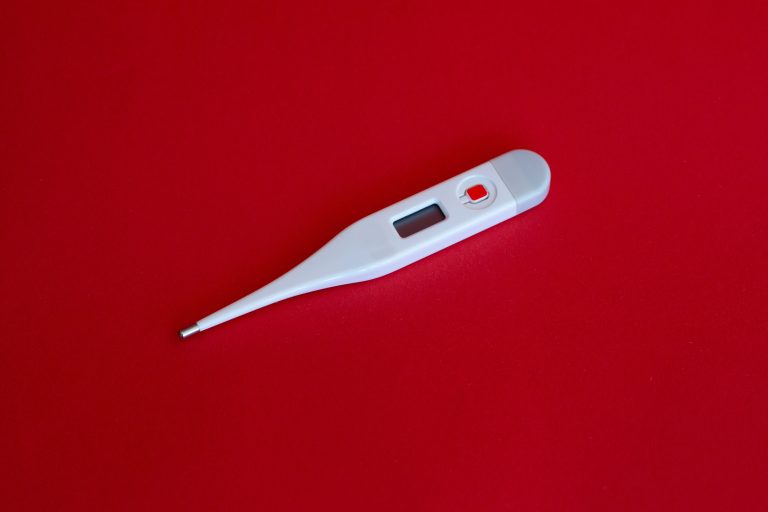
Acute illness

Preventative health
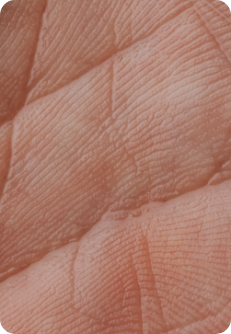
Skin Cancer

Travel Health

Sexual Health

Surgical Procedures

Work Health

Mental Health

Reproductive Health

Physiotherapy
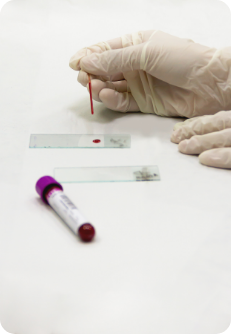
Pathology
